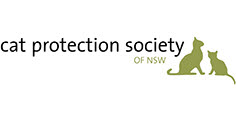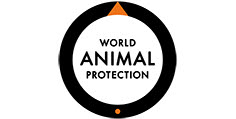The role of animal carers and animal welfare groups
Responsible pet owners, vets, and animal welfare groups all have the well-being of animals in mind.
Responsible pet owners ensure that they address all their pets’ needs and keep them safe, happy and healthy.
Veterinarians look after the health and well-being of animals.
They not only diagnose, treat, prevent and investigate animal disease and injury but are trained in all aspects of the general management of animals.
Animal welfare groups dedicate their time to ensuring that all animals are treated fairly and that the community is aware of the protocols and expectations related to the handling, management, and ownership of animals.
There are many animal welfare groups worldwide.
Animal Welfare League
The AWL is one of Australia’s largest animal welfare charities.
It was founded in 1958 by a group of concerned people who were opposed to animal cruelty and operates animal shelters, managing the surrender, care and adoption of animals.
The AWL operates a team of inspectors, who investigate allegations of cruelty and prosecute under the provisions of the Prevention to Cruelty of Animals Act.
The AWL is a source of information and training for the industry and public on animal welfare issues and is almost completely self-funded.
RSPCA
The Royal Society for Prevention of Cruelty to Animals (RSPCA) is a community-based charity that works to prevent cruelty to animals by actively promoting their care and protection.
RSPCA Australia believes that man must treat animals humanely.
RSPCA Australia is a Federation of eight independent State and Territory RSPCA bodies called member Societies. RSPCA member Societies do much of the hands on work traditionally associated with the RSPCA such as the operation of shelters and the Inspectorate plus community education and fundraising.
RSPCA Australia is home to a strong science and campaigns team, with a particular focus on farm animal issues. It is responsible for facilitating national campaigns and events and representing the interests of animal welfare with Government and industry across all areas.
Delta Society
![]()
Delta Society Australia’s mission is to promote and facilitate positive interaction between animals and people.
Delta Society has three core projects:
- The Canine Good Citizens program is a package aimed at producing well-socialised and well-behaved dogs with informed, responsible and satisfied owners.
- Delta Dog Safe is a pro-active, dog-friendly school education program for 5 to 8-year-old children, their parents, and local communities. Designed by Delta Australia as a public health initiative it teaches safe and sensible behaviour around dogs, both family pets and stray or street dogs.
- Delta Pet Partners Program involves temperament testing volunteers’ pet dogs and training the volunteers to become Pet Partner teams.
Volunteers and their Delta dogs will visit any institution where re-establishing contact with a companion animal enhances the quality of the patients’ and residents’ lives.
Cat Protection Society
The Cat Protection Society of NSW Inc is an independent organisation founded in 1958 by a group of cat lovers concerned with the plight of homeless street cats.
The Society began a program of low cost desexing to reduce the number of kittens and therefore, the number of cats and kittens abandoned.
Today, the Cat Protection Society is a charitable association whose facilities include an adoption centre, welfare services, information and products to keep cats happy and healthy.
They deal with unwanted and abandoned cats and kittens and continue to work to improve their lives.
The CPS believes every cat deserves a loving and responsible home!
World Animal Protection
For 25 years, World Animal Protection (previously known as The World Society for the Protection of Animals - WSPA), has promoted the concept of animal welfare in regions of the world where there are few, if any, measures to protect animals.
They have campaigned to convince governments and key decision makers to change practices and introduce new laws to protect or improve the welfare of animals.
World Animal Protection has helped indigenous people set up new animal welfare groups, enabling the local community to have key involvement in the improvement of animals‘ lives.
Understanding that human ignorance is a major factor in the continuation of animal cruelty, World Animal Protection‘s education programs facilitate a change in people’s attitudes towards animals, and their plight, for the better.
World Animal Protection rescue teams provide direct help to animals that have been abandoned, neglected or caught up in natural or man-made disasters all over the globe.
World Animal Protection's work is focused on four priority animal welfare areas:
- Companion animals - responsible pet ownership, humane stray management and preventing cruelty.
- Commercial exploitation of wildlife - intensive farming and cruel management and killing of wild animals for food or products.
- Farm animals - intensive farming, long distance transportation and slaughter of domestic animals for food.
- Disaster relief for animals - providing care to animals in distress from man-made or natural disasters.




